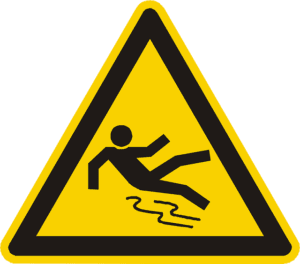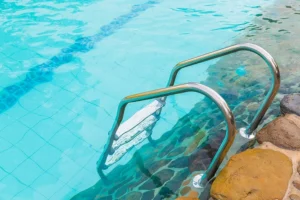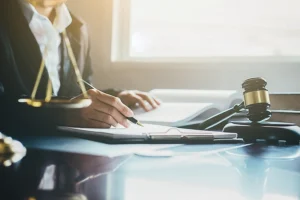Florida Premises Liability Attorneys

Florida is home to countless malls, restaurants, and other attractions. While these properties serve up fun experiences, they can also pose a serious injury risk to visitors. Every day, Americans are hurt at establishments because the owners did not take the necessary steps to secure their properties and protect their patrons. This is considered a breach of the owners’ duty of care.
If you were seriously hurt while visiting someone else’s property and believe you have grounds for a claim, turn to the legal team at Weston & Pape. Our attorneys can evaluate the incident from all angles to help you identify the liable parties and determine the best way forward. Call 866-349-2912 to schedule a free case evaluation.
What Losses Can I Pursue in a Premises Liability Case?
Premises liability claims often involve incredibly serious injuries. These cases typically arise when a property owner, manager, or occupier fails to maintain safe conditions on their premises, resulting in harm to visitors or guests. Whether it’s a slip and fall at a grocery store, a trip hazard on a poorly maintained sidewalk, or a lack of adequate security leading to an assault, the consequences of such negligence can be life-altering.
For victims, the aftermath is rarely simple. Beyond the physical pain and emotional trauma, many face unexpected medical expenses, time away from work, and significant lifestyle changes. Unfortunately, those injured are often left to deal with these burdens alone, trying to navigate a confusing and complex legal landscape while also attempting to recover.
Fortunately, Florida law allows injured parties to pursue compensation for their losses. If your injuries were caused by a property owner’s negligence, you may be able to file a premises liability claim to recover both economic and non-economic damages. Below is an overview of the most common types of compensation you may be entitled to seek in such a claim.
Lost Wages
If your injuries prevented you from working—whether for a few days, weeks, or even months—you may be able to recover compensation for the income you lost during that time. This includes not only your base pay but also any bonuses, tips, commissions, or other forms of compensation you would have reasonably earned had the injury not occurred.
In many cases, victims face an extended period away from their jobs while they undergo treatment, attend physical therapy, or manage long-term complications. Some may be unable to return to their previous line of work altogether. If your injuries have resulted in a long-term or permanent disability that limits your ability to earn a living, your claim may include compensation for loss of future earning capacity. This calculation is typically based on expert testimony and factors such as your age, occupation, skills, and the severity of your injuries.
In short, a serious injury can derail your career—not just for a few weeks but potentially for the rest of your life. A premises liability attorney can help ensure that these future losses are taken into account during settlement negotiations or litigation.
Medical Costs
Even seemingly minor injuries can lead to surprisingly high medical bills. Between diagnostic testing, prescription medications, doctor’s visits, emergency care, and follow-up treatments, the costs can add up quickly. For those suffering from serious or catastrophic injuries—such as spinal cord damage, traumatic brain injuries, or severe fractures—the expenses can become overwhelming and may persist for years or even a lifetime.
Your premises liability claim may seek compensation for a wide range of healthcare-related costs, including:
-
Emergency room treatment
-
Hospital stays
-
Surgeries
-
Medications
-
Physical and occupational therapy
-
Medical equipment (e.g., crutches, wheelchairs, braces)
-
Home health care services
-
Future medical expenses
To support your claim, your attorney will typically gather all relevant medical records and may consult with healthcare professionals or medical experts to project the costs of future care. The goal is to ensure that your settlement or award accurately reflects the full scope of your financial burden—not just your bills to date.
Pain and Suffering
Some damages are more difficult to quantify than others. While you can show a receipt for a hospital bill or a pay stub to prove lost income, how do you place a dollar value on physical pain, emotional distress, or loss of enjoyment in life?
Pain and suffering damages are designed to address the non-economic consequences of your injuries. These can include:
-
Physical discomfort and chronic pain
-
Emotional distress, including anxiety and depression
-
Sleep disturbances
-
Post-traumatic stress disorder (PTSD)
-
Loss of enjoyment of life (e.g., being unable to participate in activities you once loved)
-
Strain on personal relationships or family dynamics
While these losses don’t come with a specific price tag, they are very real—and Florida law allows victims to pursue compensation for them. To support your claim for pain and suffering, your attorney may encourage you to keep a personal injury journal. In it, you can record your daily pain levels, your emotional state, the impact your injuries have on your ability to function, and how your condition affects your personal and professional life. This journal can serve as powerful evidence in demonstrating the true toll the accident has taken on your wellbeing.
Other Costs and Out-of-Pocket Expenses
Accidents often lead to a variety of additional costs that may not be immediately apparent but are no less significant. These out-of-pocket expenses can quickly become a financial strain, especially when paired with lost income and high medical bills. Fortunately, many of these costs may be recoverable as part of your premises liability claim.
Some examples of additional damages include:
-
Home modifications: If your injury has resulted in mobility limitations, you may need to install ramps, widen doorways, or make other accessibility improvements to your home.
-
Transportation costs: Whether it’s the cost of rideshare services to medical appointments or the expense of renting a vehicle while yours is out of commission, these expenses can add up.
-
Childcare or domestic help: If your injuries prevent you from caring for your children or managing your household, you may need to hire outside help.
-
Medical travel: In cases where specialized treatment is needed and is not available nearby, travel expenses for you and a caregiver may also be compensable.
-
Lost educational opportunities: If your injuries have caused you to delay or abandon schooling or training programs, you may be able to seek compensation for lost tuition or future earning potential.
It’s a good idea to keep all receipts, invoices, and documentation related to these kinds of expenses. The more evidence you can provide, the easier it will be for your attorney to present a compelling case for full and fair compensation.
Maximizing Your Recovery with Legal Support
Navigating a premises liability claim on your own can be daunting. Property owners and their insurers may try to minimize your injuries, deny liability, or pressure you into accepting a low settlement. They may argue that you were at fault, downplay the extent of your injuries, or even claim that you were trespassing.
Working with an experienced premises liability attorney gives you the advantage of a knowledgeable advocate who can gather evidence, consult with experts, negotiate with insurers, and—if necessary—litigate your case in court. Your attorney will ensure that all possible damages are identified and accurately valued, giving you the best chance of receiving the compensation you deserve.
In the wake of a premises liability accident, it’s easy to feel overwhelmed by the combination of physical pain, emotional distress, and financial strain. However, you don’t have to face this challenge alone. By pursuing a personal injury claim, you may be able to recover compensation for a wide range of losses—from lost wages and medical bills to pain and suffering and unforeseen expenses.
If you or a loved one has been injured on someone else’s property due to negligence, consult a Florida premises liability attorney as soon as possible. The sooner you act, the more effectively your legal team can gather evidence, protect your rights, and pursue justice on your behalf.
What Should I Do to Protect My Case?
After sustaining a serious injury, staying calm can be incredibly difficult. Whether you slipped on a wet floor, tripped over uneven pavement, or were harmed by inadequate security measures, the moments following a premises liability incident are often filled with confusion, pain, and anxiety. However, what you do during this critical period can significantly influence the outcome of your personal injury claim.
Taking a few mindful steps can make a world of difference when it comes to preserving evidence, demonstrating liability, and ultimately recovering the compensation you need to heal and move forward. Here are some of the most important actions to take after suffering an injury on someone else’s property:
Write Down What You Can Remember
As soon as possible after the incident—ideally while details are still fresh in your mind—take a moment to write down everything you can recall about the accident. Even small details may prove important later. Your personal account can serve as a valuable piece of evidence, especially if the property owner or their insurer disputes your version of events.
Consider the following when recording your statement:
-
What were you doing immediately before the accident?
-
What caused the accident (e.g., a spill, poor lighting, uneven flooring)?
-
Where exactly on the property did the incident occur?
-
What happened immediately after you were injured?
-
Did you speak with anyone at the scene? What did they say?
-
Did you admit any fault or apologize?
-
Were there any warning signs posted?
-
Were there cameras nearby that may have captured footage?
-
Did any bystanders witness the accident?
In addition to writing down your recollection, it’s also a good idea to take photos of your injuries and the scene if possible. These images can help document the severity of the harm you suffered and the conditions of the property at the time of the incident.
Track Your Expenses
Once the dust settles and you begin seeking treatment, expenses may start piling up quickly. From ambulance fees and emergency room visits to follow-up appointments, medications, and time away from work, the financial burden of an injury can be overwhelming. That’s why it’s essential to document every expense related to your accident carefully and consistently.
Here are some of the key types of financial evidence you should retain:
-
Medical bills and receipts
-
Prescription costs
-
Out-of-pocket expenses for medical equipment or travel to appointments
-
Invoices for home modifications or support services
-
Letters from your employer verifying missed work or lost income
-
Pay stubs showing your typical earnings before the injury
-
Bank statements and insurance correspondence
These records will be used to help calculate your damages and ensure that your premises liability claim accurately reflects your economic losses. Keeping everything organized in a folder or digital file can make it easier for your attorney to build a comprehensive case on your behalf.
Seek Immediate Medical Treatment
It’s not uncommon for accident victims to downplay their symptoms, especially if the injury seems minor at first. However, failing to seek medical attention promptly can jeopardize both your health and your claim. Some serious injuries, such as concussions, internal bleeding, or soft tissue damage, may not cause immediate pain or may worsen over time.
Getting an evaluation from a qualified healthcare professional ensures that your condition is properly diagnosed and treated. More importantly, it creates a formal medical record linking your injuries to the incident in question—an essential piece of evidence in any premises liability case.
If you delay seeking treatment, the insurance company may argue that your injuries weren’t severe, or that they were caused by something unrelated to the incident. To avoid these complications, always err on the side of caution and get checked out as soon as possible.
Gather Evidence at the Scene
While your attorney will conduct a thorough investigation into the circumstances surrounding your accident, your own efforts to preserve evidence in the moments after the incident can be incredibly valuable. Whenever it’s safe to do so, try to gather as much information at the scene as possible.
This may include:
-
Photographs or videos of the hazardous condition (e.g., a wet floor, broken handrail, cluttered walkway)
-
Close-up and wide-angle shots to show both the details and the general area
-
Images of warning signs (or lack thereof)
-
Contact information for eyewitnesses who saw the accident occur or who can confirm unsafe conditions
-
The names of employees or managers who were on duty at the time
-
Details about surveillance cameras in the area that may have recorded the incident
Your attorney can use this evidence to help establish liability, prove that the property owner or occupier was negligent, and demonstrate the connection between the dangerous condition and your injury.
Report the Incident to the Property Owner or Manager
Whenever you suffer an injury on someone else’s property, it’s important to report the incident to the appropriate party—whether that’s a store manager, landlord, building supervisor, or security officer. Filing an official report not only documents that the accident occurred but also prompts the property owner to take note of the hazard, which may help prevent others from being hurt.
When reporting the incident:
-
Be factual and concise
-
Do not exaggerate or speculate
-
Request a copy of the report for your records
-
Avoid admitting fault or downplaying your injuries
An incident report can serve as key evidence in your premises liability claim and help your attorney demonstrate that the property owner was made aware of the dangerous condition.
Speak to a Florida Premises Liability Attorney Today
One of the most important steps you can take after a premises liability injury is to consult with an experienced personal injury attorney. A skilled lawyer can assess the facts of your case, gather additional evidence, handle communications with the insurance company, and help you pursue the full compensation to which you may be entitled. Our premises liability attorneys in Florida have decades of collective experience handling these cases. To schedule a free initial consultation, contact us today at 866-349-2912.



 Call Us Today
- It's Free
Call Us Today
- It's Free